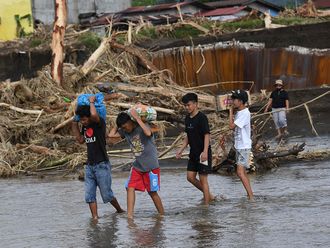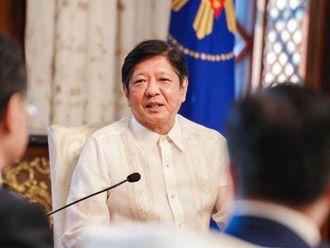Manila: A panel that will develop policy guidelines on bilateral labour agreements has been ordered formed by Labour Secretary Rosalinda Dimapilis-Baldoz.
Administrative Order No.383, signed last October 13 but made public only recently, will focus on the protection of overseas Filipino workers, Baldoz said.
The order establishes the Department of Labour and Employment’s Committee on Bilateral Agreement Matters.
“This is in line with the Department’s ‘package of reforms’ to provide greater protection to overseas Filipino workers, particularly through the implementation of Republic Act (R.A) 10022 and its implementing rules and regulations,” Baldoz’s order said.
RA 10022 amends the Migrant Workers’ Act of 1995 and recognizes and protects the rights of Filipinos who are employed abroad.
Likewise it commits the government to help Filipinos who are in distress abroad even if they had entered their host country without proper documents.
“The creation of the committee is in line with our implementation of our reforms to provide expanded protection and welfare to our OFWs (Overseas Filipino Workers),” she said.
According to the Centre for Migrant Advocacy, bilateral labour agreements should not just regulate labour migration but protect workers and promote their rights as well.
The panel is headed by the DOLE undersecretary for employment while the administrator of the Philippine Overseas Employment Administration (POEA) shall serve as committee vice-chairman, Baldoz’s order said.
“Heads of the DOLE’s concerned agencies and offices, specifically the Overseas Workers Welfare Administration, Technical Education and Skills Development Authority, Professional Regulations Commission, Institute for Labor Studies, Bureau of Local Employment, International Labour Affairs Bureau, the DOLE Legal Service shall constitute its membership,” it said.
Among the other general functions of the committee are; to review and assess existing bilateral agreements/arrangements; monitor/evaluate the implementation of bilateral labour agreements; coordinate with relevant agencies pertinent to proposals for bilateral pacts; and recommend amendments/termination of the bilateral labour agreements whenever necessary.
With the aim of protecting overseas Filipino workers, the government had taken the tact of forging bilateral agreements with host countries instead of less formal-non-binding arrangements.
It can be recalled that the Philippines had made a landmark effort to protect its multitudes of overseas workers when it amended its laws governing migrant workers - the Migrant Workers’ Act of 1995 - by making it more responsive to the needs of Filipinos working overseas.
Presently, the Philippines has bilateral labour agreements with more than two dozen countries.
Labour migration has evolved to become a cornerstone of the country’s development strategy. One out of every ten Filipino is employed abroad and migrant workers continue to contribute to the country’s consumer-dependent economy.












